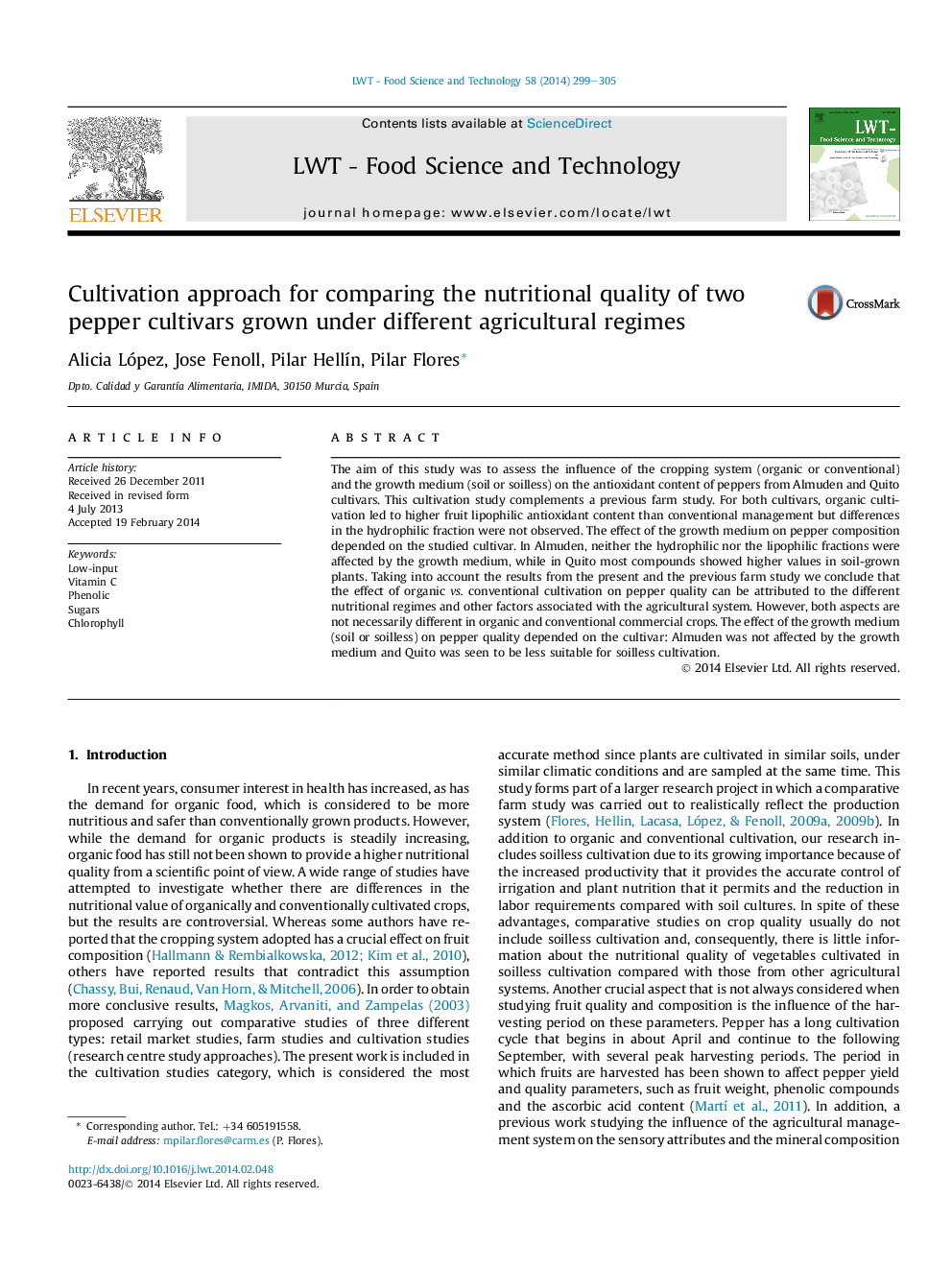| کد مقاله | کد نشریه | سال انتشار | مقاله انگلیسی | نسخه تمام متن |
|---|---|---|---|---|
| 6404134 | 1330899 | 2014 | 7 صفحه PDF | دانلود رایگان |
- Influence of organic, conventional and soilless cultivation on pepper antioxidants.
- This is a cultivation study on two different pepper cultivars (Quito and Almuden).
- The effect of soilless cultivation greatly depended on the selected cultivar.
- Organic cultivation only affected lipophilic antioxidant content in both cultivars.
- Results are discussed taking into account the present and a previous farm study.
The aim of this study was to assess the influence of the cropping system (organic or conventional) and the growth medium (soil or soilless) on the antioxidant content of peppers from Almuden and Quito cultivars. This cultivation study complements a previous farm study. For both cultivars, organic cultivation led to higher fruit lipophilic antioxidant content than conventional management but differences in the hydrophilic fraction were not observed. The effect of the growth medium on pepper composition depended on the studied cultivar. In Almuden, neither the hydrophilic nor the lipophilic fractions were affected by the growth medium, while in Quito most compounds showed higher values in soil-grown plants. Taking into account the results from the present and the previous farm study we conclude that the effect of organic vs. conventional cultivation on pepper quality can be attributed to the different nutritional regimes and other factors associated with the agricultural system. However, both aspects are not necessarily different in organic and conventional commercial crops. The effect of the growth medium (soil or soilless) on pepper quality depended on the cultivar: Almuden was not affected by the growth medium and Quito was seen to be less suitable for soilless cultivation.
Journal: LWT - Food Science and Technology - Volume 58, Issue 1, September 2014, Pages 299-305
